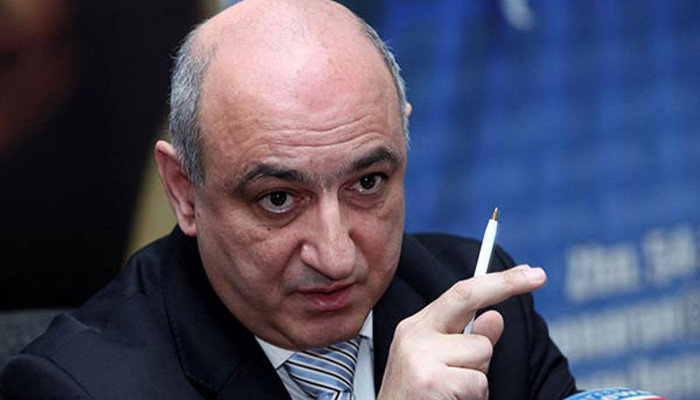What Did Aliyev and Pashinyan Agree on in Moscow?

Political analyst and Honorary President of the Yerevan Press Club, Boris Navasardyan, commented on the results of the CIS Moscow summit, including the agreements reached and decisions made during the meeting, in an interview with the program “Complex Question.”
According to Navasardyan, the agreement reached during the meeting between Russian President Vladimir Putin and Armenian Prime Minister Nikol Pashinyan—that as of January 1, 2025, Russian border guards will cease to serve at the checkpoint on the Armenia-Iran border and that control will be transferred to Armenia’s National Security Service (NSS RA)—came as a complete surprise to political circles in Yerevan. Additionally, from the same date, the NSS Border Troops of Armenia will participate in guarding the state border between Armenia and Iran, and Armenia and Turkey, in conjunction with Russia’s Federal Security Service (FSB) Border Service. This decision was unexpected as the Armenian government had not previously raised the issue of protecting its own borders.
As a result, the question of whether control over the transportation route between the western regions of the Republic of Azerbaijan and the Nakhchivan Autonomous Republic (the Zangezur Corridor) would be carried out by the FSB Border Service of Russia, as stipulated in Article 9 of the “Statement of the President of the Republic of Azerbaijan, the Prime Minister of the Republic of Armenia, and the President of the Russian Federation” of November 10, 2020, was removed from the agenda.
According to Navasardyan, this raises the question: Will the November 10, 2020, Statement be officially revised? If not, the FSB’s control over the railway and the highway will remain intact. In this case, the agreement reached between Putin and Pashinyan only means that Armenia gains control over the checkpoint at the Armenia-Iran border, which does not exclude the FSB’s continued control over the railway and the highway. Therefore, Armenia needs to push for either a revision of the Statement or its nullification.
If the Statement remains unchanged, Armenia’s control over the checkpoint will be significant only for achieving EU visa liberalization. Navasardyan suggests that, in return for this concession, Moscow may have secured Armenia’s agreement not to extend the mandate of EU “observers” on the border with Azerbaijan.
 Latest news
Latest news Latest news
Latest newsGreece Plans to Exclude Turkiye from Future Defense Contracts
20.Feb.2026
U.S.-Based Mars Launches Major Investment Project in Kazakhstan
20.Feb.2026
Parliamentary Elections 2026 in Armenia as a Geopolitical Referendum
20.Feb.2026
Russia and Ukraine Fail to Reach Agreement in Geneva
19.Feb.2026
The South Caucasus in U.S. Foreign Policy: Implications of High-Level Visits for Russian and Chinese Regional Aspirations
18.Feb.2026
Ukraine Imposes Personal Sanctions on Belarusian President Alexander Lukashenko
18.Feb.2026
72% Against the Authorities: Economic Dissatisfaction Hits Record Levels in Turkiye
17.Feb.2026
Bulgaria Strengthens Defense: First American Stryker Vehicles Delivered
17.Feb.2026
Moscow Criticizes Plans to Build a U.S.-Backed Nuclear Power Plant in Armenia
16.Feb.2026
Washington expects Tbilisi to strengthen ties amid regional changes
15.Feb.2026

 28 Feb 2026
28 Feb 2026









